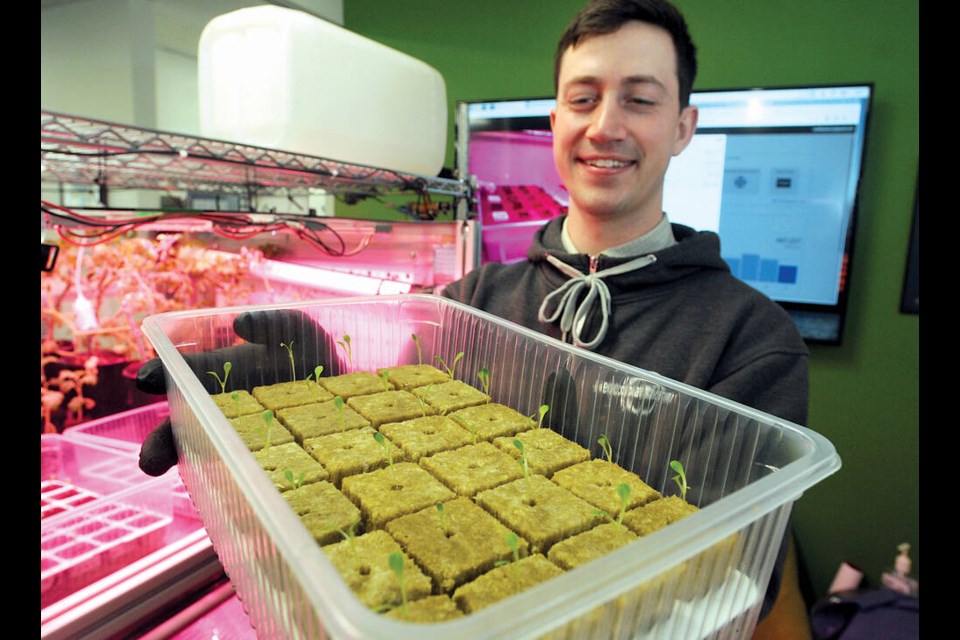Compared to the seemingly limitless potential of space travel, the list of fresh options on the menu for astronauts is slim.
But a new growing system developed by a team at Ecoation Innovative Solutions in North Vancouver could be a cosmic source of fresh produce and protein sooner than you might think.
The crew at Ecoation has been selected as one of four finalists in a national Deep Space Food Challenge. An announcement was made on Thursday by the Canadian Space Agency, which is awarding each of the entrants $100,000. The challenge is being run in tandem with NASA, which has named 11 finalists from the U.S. and internationally.
In May, representatives from the Canadian teams – which include Concordia University, McGill University and University of Guelph – will meet the other finalists at an event in New York.
When Gavin Schneider, vice-president of agronomy at Ecoation, learned his team made the finals, he ran out of his office and screamed at the team. “It was pretty exiting,” he said.
Judges impressed by protein-mycelium product
Reflecting on remarks from the judges’ panel, which visited the North Vancouver company in January, Schneider said his team received positive feedback on the diversity of food offerings, the ingenuity of the climate system and the data gathering components.
But what the judges were most impressed by was the part of the system that produced protein from mycelium, the vegetative body of fungus.
“They pointed out that was new and novel to them, and they hadn’t seen that before,” Schneider said. “I think they’d like to see that incorporated more heavily into this next part of the challenge.”
Instead of a previous mix of 80 per cent plants and 20 per cent mycelium, Ecoation’s next iteration will be 50-50, he added. The “mycoprotein” product is made by Maia Farms, where Schneider is the co-founder and CEO.
The $100,000 prize will go toward building version two of Ecoation’s CanGrow modular system, which is designed to supplement astronauts’ diet for a three-year mission to the moon or Mars.
The crew will incorporate lessons learned during the first part of the contest, as well as a new set of requirements for the next phase. Judges will want to see more sophisticated automation and robotics, Schneider said.
“We’re going to try to do everything as closed loop and as automated as possible,” he said.
The next leg also might involve running the system in a remote area like the Arctic, Schneider explained.
With a grand prize winner being announced a year from now, the timing could be auspicious for the Artemis III mission to the moon in 2024.
“I can’t speak for what they fully have planned with this, but maybe there is a possibility,” Schneider said. “I think the timing of this looks pretty good.”



